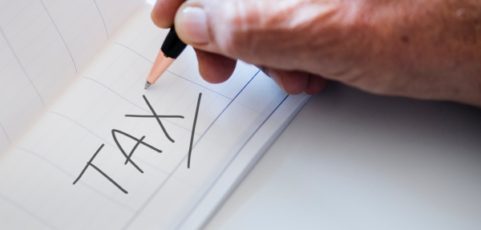As an Amazon seller you spend a lot of time pricing, sourcing or figuring out what to sell. It is easy to overlook sales tax. Many online sellers do not understand when they should collect sales tax and what obligations they have to distribute those funds to the individual states. Here is some basic information to get you started.
WHEN SHOULD SALES TAX BE COLLECTED?
Sales tax should be collected from a buyer located in a state where you have nexus, or a physical presence. Even though you may not have an office or employees in a particular state, if Amazon stores and ships your products from their warehouse then that is usually enough to create nexus in that state.
Sales tax rates can vary by product and by jurisdiction. This means that you may have buyers located in two different counties of a state paying different sales tax rates. Some buyers are tax-exempt, meaning they are not subject to sales tax on their purchases.
To further complicate things, in a major sales tax decision, the United States Supreme Court ruled in favor of states to collect sales tax from online business owners that do not have a physical presence in their state.
HOW WILL I KNOW WHERE MY INVENTORY IS?
If you are storing your inventory from your home or a nearby location then determining your nexus is straightforward. If you sell your products through Amazon FBA, your inventory could be anywhere. This complicates matters as it relates to sales tax and your compliance obligations. There is, however, a service called Wherestock that will provide you a report of where your Amazon FBA inventory is located.
WHY SHOULD YOU CARE?
Even though sales tax rules and regulations can be complicated for Amazon sellers, that is still no excuse for not being aware of compliance issues. Amazon can collect the sales tax on behalf of sellers. However, it is the seller’s responsibility to file any necessary sales tax returns. Failure to remit sales tax or file sales tax returns could lead to penalties.
More and more states have their sights set on going after business owners for sales tax, particularly from online sales. Amazon recently buckled under pressure from Massachusetts to share information on Amazon sellers who may be liable for sales tax. It would be safe to assume that this will happen with other states as well.
WHAT CAN YOU DO?
You can spend hours upon hours trying to figure out the complex rules in each state and local jurisdiction or you can register your business as a sales tax vendor and use a third-party service provider like TaxJar or Avalara to prepare and file the sales tax return for you.
Whatever you do, don’t let sales tax stress you out or slow down the growth of your business.
Get Help Tax and Bookkeeping registers businesses for sales tax in states that collect it.

